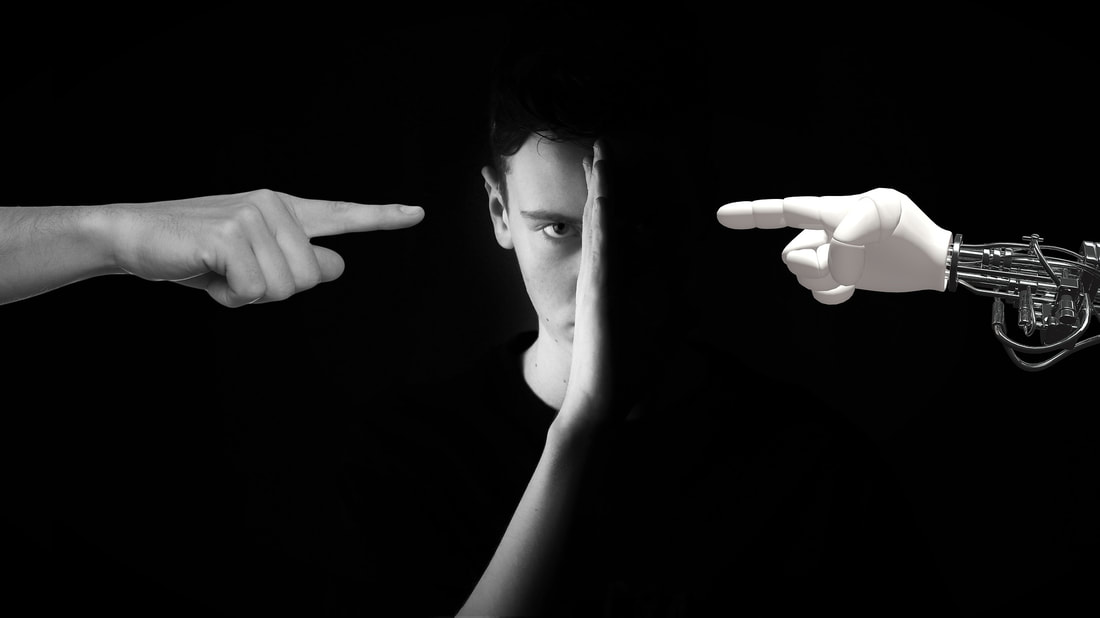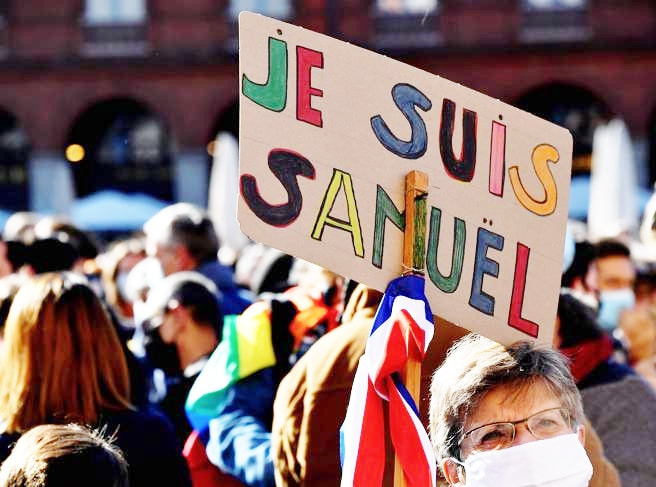|
‘It is not power that corrupts but fear. Fear of losing power corrupts those who wield it and fear of the scourge of power corrupts those who are subject to it.’ (Aung San Suu Kyi) I ran a 3-day workshop in the Philippines for students who were about to graduate from a university for the poor. As we talked about their role and career aspirations for the future, I invited them to do role-plays that would, I thought, enable them to prepare for interviews and increase their chances of success. They smiled, albeit kindly, at my naivety. In role play after role play, with typical Filipino creativity and playfulness, the students depicted scenarios in which getting a job had nothing to do with personal merit and everything to do with whom the applicant knows or is connected to, and what level of contribution for expenses (bribe) the applicant is willing and able to pay to those conducting the interviews and making the appointment decisions. I felt astonished and depressed. Endemic corruption saps the life and energy out of people and societies and deprives them of so much talent and potential. I was intrigued to explore this further so asked the students how much money they would need to pay to get a job. They responded that such forms of corruption are culturally-coded euphemistically so that, in effect, everyone knows what game is being played without anyone explicitly admitting it. For instance, if a student were to be invited to an interview at 2.00pm, it means they will need to pay 20k pesos. If at 4.00pm, then 40k pesos. If they don’t turn up with the required cash, or are not connected to a suitable sponsor, they will be offered a post-rationalisation (excuse) for their apparent failure. This encounter was certainly an eye-opener for me. We moved on to look at other ways in which corruption manifests itself in societies around the world; e.g. in payment of financial incentives (backhanders) to secure specific political policies, judicial outcomes or commercial contracts. Media manipulation, attacks on press freedom, silencing of political opponents, undermining of democratic structures and civil society, monopolisation of markets: all undermine social and economic accountability and opportunity. The biggest challenge when corruption becomes thoroughly pervasive is where and to whom to go to address it. Speaking truth to ourselves can be hard enough to endure. Speaking truth to power can lead to alienation…or to a bullet.
10 Comments
‘Action Learning aims to shake you out of the cage of your current thinking.’ (Pedler & Boutall) Action Learning: a method by which someone receives stretching, coaching-type questions from a small group of peers. The aim is to resolve a pressing challenge, a real-life/work issue that has left the person perplexed or stuck. The idea is to leave with actions, practical steps that will help to move things forward. Yet what gets a person stuck in the first place? If it’s a complex challenge, such as that of navigating the intricacies of diverse human relationships, we may become inadvertently caged by our own assumptions. Gareth Morgan commented that ‘people have a knack for getting trapped in webs of their own creation.’ If we don’t know what assumptions we’re making, everything may seem self-evident to us. This is where Action Learning and coaching really can help. If we can engender a spirit of curiosity within ourselves and invite challenging questions from different others, we may discover a door emerging in our previously-unseen cage, experience the agency to push it wide open and step outside to embrace fresh possibilities. It could just change...everything. ‘Truth is the first casualty of war, they say. In fact, it’s more often freedom and reason.’ (Brendan O’Neill) I was wrong. I didn’t imagine that Russia would actually launch a full-scale assault on Ukraine. I felt sick, shocked and dismayed as the news unfolded this week. I can only imagine how it must feel for Ukrainians to find their country under attack and for Russians to discover their country has started a war. I felt near-despair too as I listened to rhetoric in the UK Parliament and media in the immediate wake of the invasion, denouncing neo-fascist Russian nationalism and imperialism whilst, at the same time, silencing any voices of dissent here with words like ‘appeasement’ and ‘treason’. There are insights from various psychological fields that can help us, yet we know from arenas such as cognitive and human givens therapies that our receptivity and ability to reason is impacted profoundly when overwhelmed by feeling. Emotions like anger, resentment and fear are running high at the moment; and understandably so because this crisis and all that it could mean are very real and being experienced by real people, families and communities here-and-now – and that makes it hard to think clearly. Yet we must think, and pray, and act with wisdom, and quickly. I can only guess what’s in Putin’s mind. The geopolitical dimensions to this conflict are complex and well beyond my ability to know or understand. I can, however, speak as a citizen or the West. I spent many years working closely with an anti-Nazi activist in Germany. I learned that we need to pay very careful attention to the conditions in which otherwise insane decisions will appear and feel rational. Hitler and the Nazis were supported and elected in Germany by many with great enthusiasm against a specific contextual backdrop: in Gestalt psychology, the ‘ground’ that gives rise to a ‘figure’. The ’ground’ out of which the current crisis has developed is very complex indeed. It includes: a long cultural history in Russia of autocratic leadership; the brutal and devastating Nazi invasion of the Soviet Union from (geographically) the West; a loss of Russian power and self-esteem following the collapse of the Soviet Union; the subsequent expansion of the NATO military alliance eastwards towards Russia’s borders; the expansion of the EU economic block eastwards to (potentially) incorporate Ukraine; a corresponding and growing sense of vulnerability and resentment in Russia. Does this suggest that the West has somehow caused the war in Ukraine? No. Correlation of these factors does not mean causation. Putin has made his own decisions. Does it suggest that the West has contributed to creating the conditions under which Putin’s decision became more likely? That’s a question I believe, in the midst of our justifiable outrage at Russia’s unjustifiable actions, we would do well to consider with prayer, humility and critical reflexivity. We stand at the edge of a dangerous precipice and, to move forward, we need very different thinking to that which brought us here. The brutal murder of Samuel Paty, a teacher in France on Friday, spun freedom of expression back into the media spotlight. Freedom of speech is, after all, a bedrock of Western democracy – not only the safeguarding of the expression of thoughts, feelings, and opinions but also, critically, the right and opportunity to be exposed to those of other people and groups too. The same principle applies in liberal education: learning, development, creativity and innovation emerge from the interaction of diverse insights, experiences and ideas; sometimes awkwardly or angrily if they clash, yet vital for healthy growth. Emmanuel Macron has described the current Kairos moment as an existential crisis: a fundamental conflict between secular, liberal European values and those of radical Islam. A broader cultural backdrop is, however, a struggle between freedom of speech and freedom from harm, where the latter includes freedom from offence. Brendan O’Neill commented last weekend that, in France, “cancel culture turned murderous…the (teacher’s) beheading was a militarised expression of (it).” The silencing of a voice, the no-platforming of a dissenting view, can lead to dire unintended consequences. Coming from a very different place politically to O’Neill, Douglas Murray struck a strikingly similar chord in, ‘The Madness of Crowds’ (2019/20): “We are going through a great…derangement”. Cultural and technological upheavals are driving humanity at breakneck speed into uncharted territories where many hitherto beliefs, values and assumptions are being stress-tested to their limits. Grasping at simplistic and polarising stances – no matter how irrational – is one way to feel safer and more purposeful in the world. So, question: What do these feverish times call for from us, as leaders, coaches, trainers and OD? |
Nick WrightI'm a psychological coach, trainer and OD consultant. Curious to discover how can I help you? Get in touch! Like what you read? Simply enter your email address below to receive regular blog updates!
|







 RSS Feed
RSS Feed